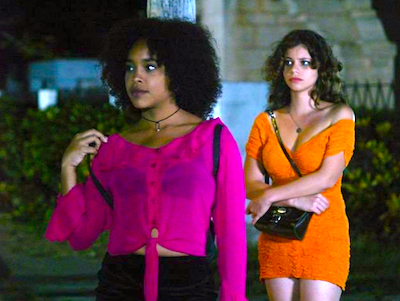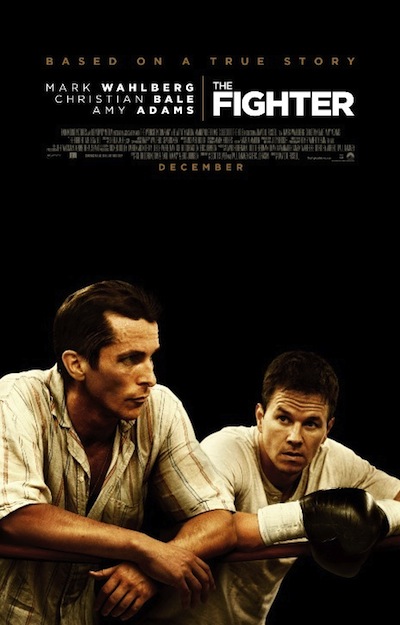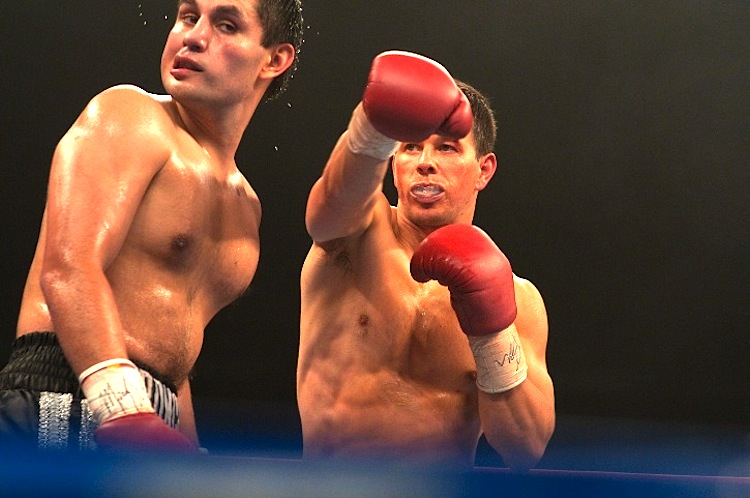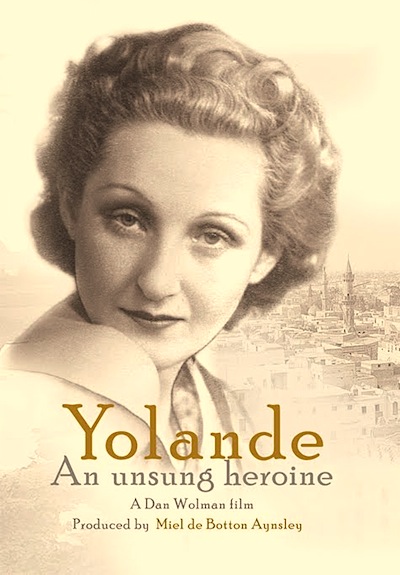By Joe Bendel. Trading one addiction for another is a peril of rehab. This seems to have happened with Atafeh Hakimi’s brother. Drug-free but now a virulent religious Islamist, Meyran Hakimi’s return destabilizes his affluent Iranian family in Maryam Keshavarz’s Circumstance, which screens during the 2011 Sundance Film Festival.
Mehran was once the most promising musician in his musical family. Much to their regret, the newly radicalized prodigal son has forsaken such pursuits. Unbeknownst to his family, Mehran’s career path now involves the secret police. This will directly complicate Atafeh’s life when they both fall in love with her best friend, the free-spirited Shireen Arshadi.
Needless to say, neither lesbian relations nor free-spiritedness in general cut much ice with Mehran. Having wired the family flat for surveillance, the jealous brother understands exactly what is going on between the young women. As Hakimi and Arshadi press their luck in Tehran’s underground party scene, brother Mehran bides his time, not about to let the inevitable crisis go to waste (as our current administration would counsel).
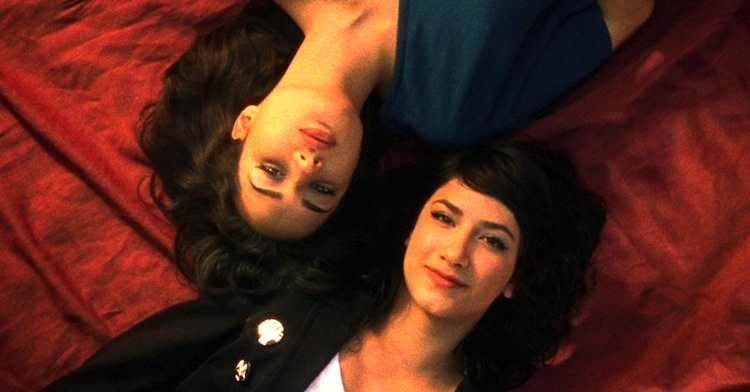
While press kit descriptions of the Iranian-born, American-educated Keshavarz’s previous works sound like a somewhat mixed bag, Circumstance is a legitimately bold, outspoken critique of the institutionalized mistreatment of both women and homosexual Iranians under fundamentalist misrule. There is no question Hakimi and Arshadi’s relationship puts them at an existential risk. At times, Keshavarz also captures the absurd situations fostered by the Iranian system, as when the two young women help their gay Iranian-American friend Hossein dub Sex in the City into Farsi to hook people into watching Gus Van Zandt’s Milk strategically placed on the same bootleg disk. However, the extent to which the mullahs have evidently co-opted the supposedly atheistic Che Guevara as a symbol of their revolution is hardly surprising. After all, Che shared their zealous commitment to statism through terror.
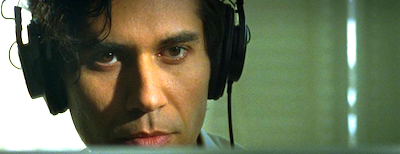
Circumstance is an intriguing film on multiple levels, examining not just gender and sexual orientation, but also class in contemporary Iran. The Hakimis are the sort of privileged family that are assumed not to exist in Iran, but their father’s early support for the Islamic Revolution during his student days preserves their position, despite their relative moderation. Yet, those allowances only extend so far.
Nikohl Boosheri and Sarah Kazemy are undeniably charismatic as Hakimi and Arshadi (respectively), which makes their dire straits quite disturbing. Though a relatively small part, Sina Amedson leaves a strong impression as Hossein, deftly serving as the film’s conscience when he directly challenges Hakimi and Arshadi to strive to “change their circumstances” (thereby supplying the film’s title as well).
Though Circumstance is somewhat frank depicting the women’s relations, it is not meant as titillation. Indeed, it is a revealing look at life lived under oppressive conditions. A real standout at this year’s Sundance Film Festival, Circumstance screens again on Tuesday (1/25) in Salt Lake City and Wednesday (1/26), Thursday (1/27), Friday (1/28), and Saturday (1/29) in Park City.
[UPDATE: Deadline Hollywood is reporting that Participant Media has just acquired Circumstance for distribution.]

Posted on January 24th, 2011 at 11:36pm.
